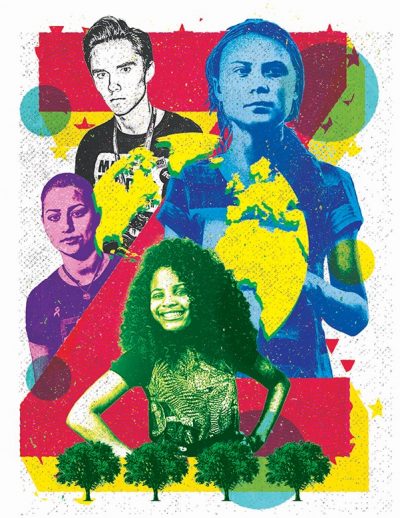
If you’re like me, you may find the constant talk of millennials a bit exhausting. With all of the things that millennials have allegedly killed, it kind of makes you wonder what they will leave behind. Enter Generation Z.
If you’re not familiar with Gen Z or to whom the term refers that’s okay, neither am I—and by definition, it’s my generation. Not long ago, Pew Research Center adjusted the definition for Gen Z to include people born between 1997 and 2012; back in 2018, that cutoff began at 1998. Based on the U.S. Census Bureau definition of millennials, Gen Z doesn’t start until 2000. It’s confusing, especially for a generation that has yet to find its footing.
Many of us at the leading edge of Gen Z are just graduating college and/or entering the workforce. We’re learning to grapple with crippling student loans and rising housing costs. Gen Z teens have yet to face these concerns. They’re busy making viral TikToks (millennials, think Vine; baby boomers, Google the word meme) documenting their development for everyone to see. The youngest of Gen Z are just entering junior high. Who knows what they’ll get into?
Here’s one thing we know: Gen Z understands empathy. Our earliest memories go back to the 9/11 attacks and the fears that ensued. We have never seen a world without war. School shootings and active-shooter drills have been part of our reality since grade school. We’ve either been personally affected by one of these tragedies, or we know someone who has.
Social media has allowed us to see the world unfiltered, in real time. When faced with a question, we can find the answer on our timeline faster than you can open a history book. Given such empowerment, we believe we can change the world.
Despite all the problems this generation will inherit, we will be ready to stand up and tackle them. Already, we’ve seen the impact of Gen Z activists like Greta Thunberg (born in 2003), whose environmental advocacy has earned global recognition; Amariyanna “Little Miss Flint” Copeny (2007), who raised national awareness about the water crisis in Flint, Michigan; and Emma Gonzalez (1999) and David Hogg (2000), who survived the Stoneman Douglas school shooting and became gun control advocates.
[FROM THE ARCHIVES: In the Wake of Parkland, Districts Ask: Are Our Schools Safe?]
This generation doesn’t simply want to get by, we want to make a difference. A 2015 study by the Institute for Corporate Productivity found 93 percent of Gen Z feels that a potential employer’s societal impact would affect whether they chose to work there. Look for Gen Z to raise the social consciousness of even the largest corporations.
Statistically, Gen Z in America is the most diverse generation yet. That influences the way we live, work and socialize. We are more sensitive to issues of race, misogyny, bigotry, homophobia and transphobia than prior generations. That portends a future with less hate and more inclusiveness.
We have our signature style, like all generations, but it is not without caveats. Our politics constantly influence our purchases, and if we see something unsavory, we’re not afraid to call it out. By the end of this year, we will become the largest generation of consumers. If marketers want to succeed, they’ll have to recognize how we are changing cultural norms and attitudes.
So keep an eye out for Generation Z. Because whether you make room or not, we’re coming up next.
